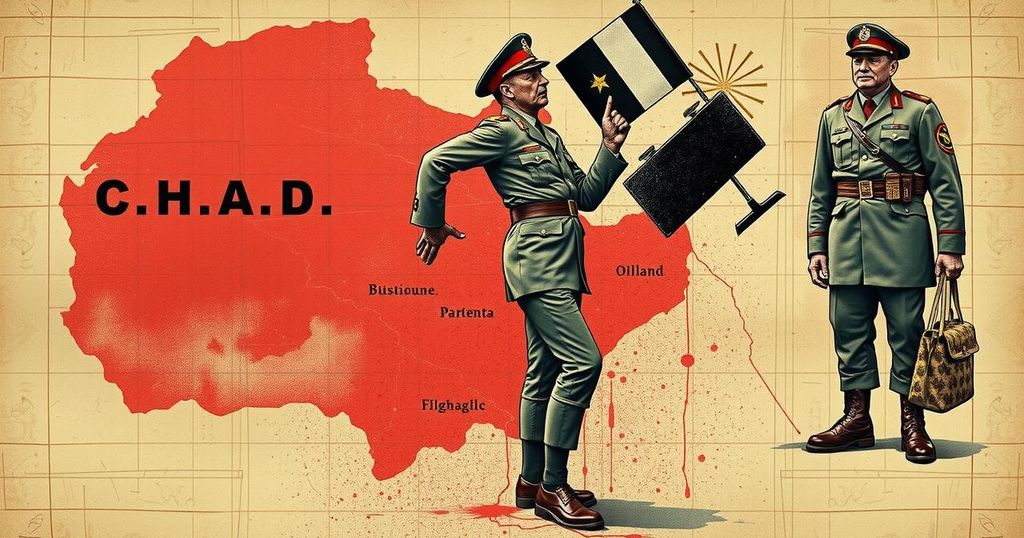Chad holds legislative, provincial, and local elections after three years of military rule amid a boycott by opposition parties, citing electoral fraud. The elections favor candidates aligned with Marshal Mahamat Idriss Itno, who succeeded his father’s authoritarian regime. Security concerns and media restrictions complicate the electoral landscape, raising questions about the legitimacy of the transition to democracy.
On Sunday, Chadians are participating in a multifaceted electoral exercise comprising legislative, provincial, and local elections, which follows a three-year period of military governance. Opposition factions are abstaining from the elections, alleging the legitimacy of previous elections has been compromised. The current political landscape favors candidates loyal to Marshal Mahamat Idriss Itno, who ascended to leadership following a military coup in 2021, subsequently winning a controversial presidential election last year.
In a statement, opposition leader Succes Masra advised voters to abstain from the polls, labeling the electoral process as deceitful, stating, “It is better to stay at home,” while alleging that the outcome has already been predetermined. Discontent within opposition ranks further intensified when the Democratic Party of the Chadian People (PDPT) reported the disappearance of over a thousand ballots intended for Bongor, urging vigilance against perceived electoral misconduct.
The elections are being conducted against a backdrop of heightened security concerns due to ongoing insurgent activity from Boko Haram in the Lake Chad area, coupled with strained relations between Chad and France, a former colonial power. Marshal Itno’s administration has framed these elections as pivotal to transitioning towards democratic governance, despite maintaining his power amidst accusations of rising authoritarianism.
Chad last held legislative elections in 2011, with numerous subsequent attempts thwarted by various challenges, including security threats and public health crises. Following the death of his father, long-standing leader Idriss Déby Itno, in 2021, Mahamat Itno was designated leader, promising reform through the establishment of a transition parliament. However, opposition voices contend that the government’s grip on power has tightened, especially in light of violent suppression of dissent witnessed during protests in October 2022.
As the polls opened for approximately eight million registered voters, the participation of security personnel and nomadic groups occurred a day earlier. However, the electoral process is marred by widespread media blackouts and restrictions on press freedoms, emphasizing the challenges facing a transparent electoral environment in Chad.
Chad has experienced significant political turmoil, particularly under the military rule established after the death of President Idriss Déby Itno in April 2021. This transition to military rule has been criticized both domestically and internationally for failing to uphold democratic norms. The previous presidential elections in May 2022 were widely regarded as fraudulent by opposition parties, leading to this boycott of upcoming legislative and local elections. The backdrop also includes a critical security situation concerning the activities of jihadist groups in the region and discontent with the regime’s handling of political opposition and media censorship. The long-standing rule of President Déby spanned over three decades, characterized by repression and allegations of electoral malpractice, setting a precedent for the current government’s conduct.
In summary, the elections in Chad represent both a critical juncture in the nation’s political landscape and a focal point for tensions between the ruling military government and opposition parties. The opposition’s boycott highlights deep-rooted grievances regarding electoral integrity, while the government presents these elections as a step toward democratic transition. However, challenges such as security threats, media censorship, and accusations of electoral fraud continue to overshadow the legitimacy of the process and the stability of Chad’s political future.
Original Source: www.france24.com






